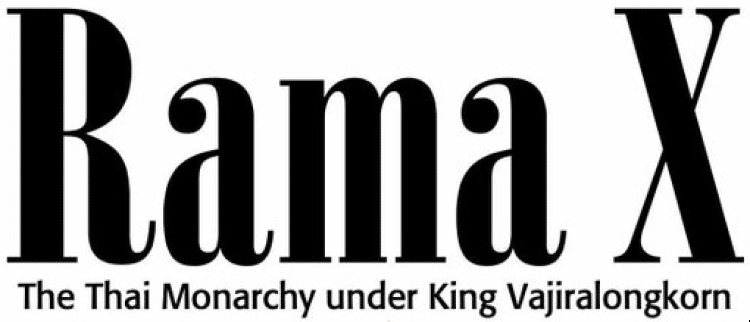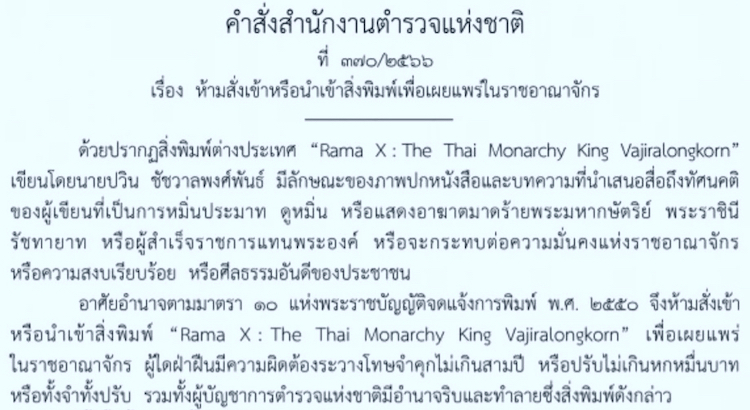

As the proverb says, don’t judge a book by its cover. But a forthcoming academic book, Rama X: The Thai Monarchy under King Vajiralongkorn, has been banned from distribution in Thailand on the basis of its cover. It will be published in the US later this year, and anyone importing it into Thailand faces up to three years in jail and/or a ฿60,000 fine. Police are authorised to confiscate and destroy any imported copies of the book, as it may contravene the lèse-majesté law. The announcement of the ban was published in the Royal Gazette (ราชกิจจานุเบกษา) yesterday (vol. 140, no. 163, p. 45).
